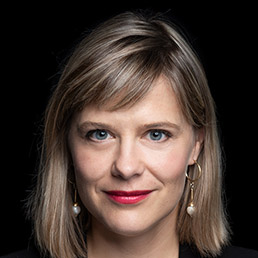The concept of "Deep Adaptation", proposed by Professor Jem Bendell in 2018, assumes that humanity needs to prepare for fundamental and interconnected global changes, such as global warming, extreme weather events, and disruptions to social, economic, and political systems. Reducing carbon emissions and limiting the use of natural resources might not be sufficient to prevent a disaster. Dr. Blachnicka-Ciacek from SWPS University will talk about opportunities for devising more optimistic futures, which include climate resistance strategies, cooperation, and interdependence.
The lecture, organized by SWPS University's Interdisciplinary Doctoral School is a part of the series The Challenges of the Humanities of the 21st Century.
The lecture will be delivered in English.
The public discussion on climate change often focuses on strategies for reducing the harm caused to the planet by our economy. These mitigation strategies, are crucial, yet not sufficient to prevent climate catastrophe. They are merely buying us time. In her presentation, Dr. Blachnicka-Ciacek will reflect on the possibilities of imagining alternative human futures that abandon the lethal logic of constant growth driven by unlimited extraction of natural resources that defines the age of Anthropocene. Instead, based on the extensive ethnographic fieldwork undertaken as part of SWPS University’s research, I will explore the practices of deep adaptation that strive for climatic resilience, interdependency and are driven by respect for the planet and her resources.

Speaker
Dominika Blachnicka-Ciacek, Ph.D. – She is a visual sociologist (PhD 2016, Goldsmiths, University of London) with an interest in researching relationships between people, spaces and memory in migration and forced migration contexts, with a regional focus on migrants and refugees in the Middle East and Europe. Her research to date has been focused on understanding the ways, in which migration is felt, sensed and represented, and how forms of life are shaped and reshaped, through the practice of mobility. She is also interested in responses to the climate change crisis. She examines mobility in the context of global challenges, such as climate crisis and environmental justice. She is a Principal Investigator in a research project “Young Poles and Climate Change: Emotions, Attitudes and Practices”, funded by SWPS University, which examines responses to the climate crisis among young Poles, including young climate activists http://youth.swps.pl/klimat/. She is also a lead on another study that explores new forms of collectivity in relation to the environmental crisis. More information »
The year 2020 has shown that humanity must be prepared for unexpected global events that can disrupt social and economic stability of the planet. The climate change is not the only problem that we are facing. Governments and researchers should be looking for ways of not only dealing with the issues at hand, but also developing long-term strategies for successful adaptations to new living conditions. Dr. Blachnicka-Ciacek, who is currently researching these issues, will talk about the concept of “deep adaptation”, which provides a wider view on the problem.
Professor Izabela Grabowska, Director of Interdisciplinary Doctoral School
“The Challenges of Humanities of the 21st Century” is a series of lectures by distinguished specialists, who represent various disciplines from the field of humanities. The events are aimed at students of SWPS University's Interdisciplinary Doctoral Program, however all interested parties are welcome. The format includes post-lecture informal discussions on topics presented by the invited experts. The friendly atmosphere of the events is conducive to networking, which lends itself to opportunities of future internships at universities or research centers around the world.
Doctoral Education at SWPS University is directed to people interested in an academic career and also to those, who would like to continue their education and personal development in support of their career advancement. The interdisciplinary character of our programs allows students to participate in projects from various disciplines. Our doctoral students collaborate with scholars from the best research centers in Poland and around the world. The master-apprentice approach guarantees that each student receives individual attention and professional support.